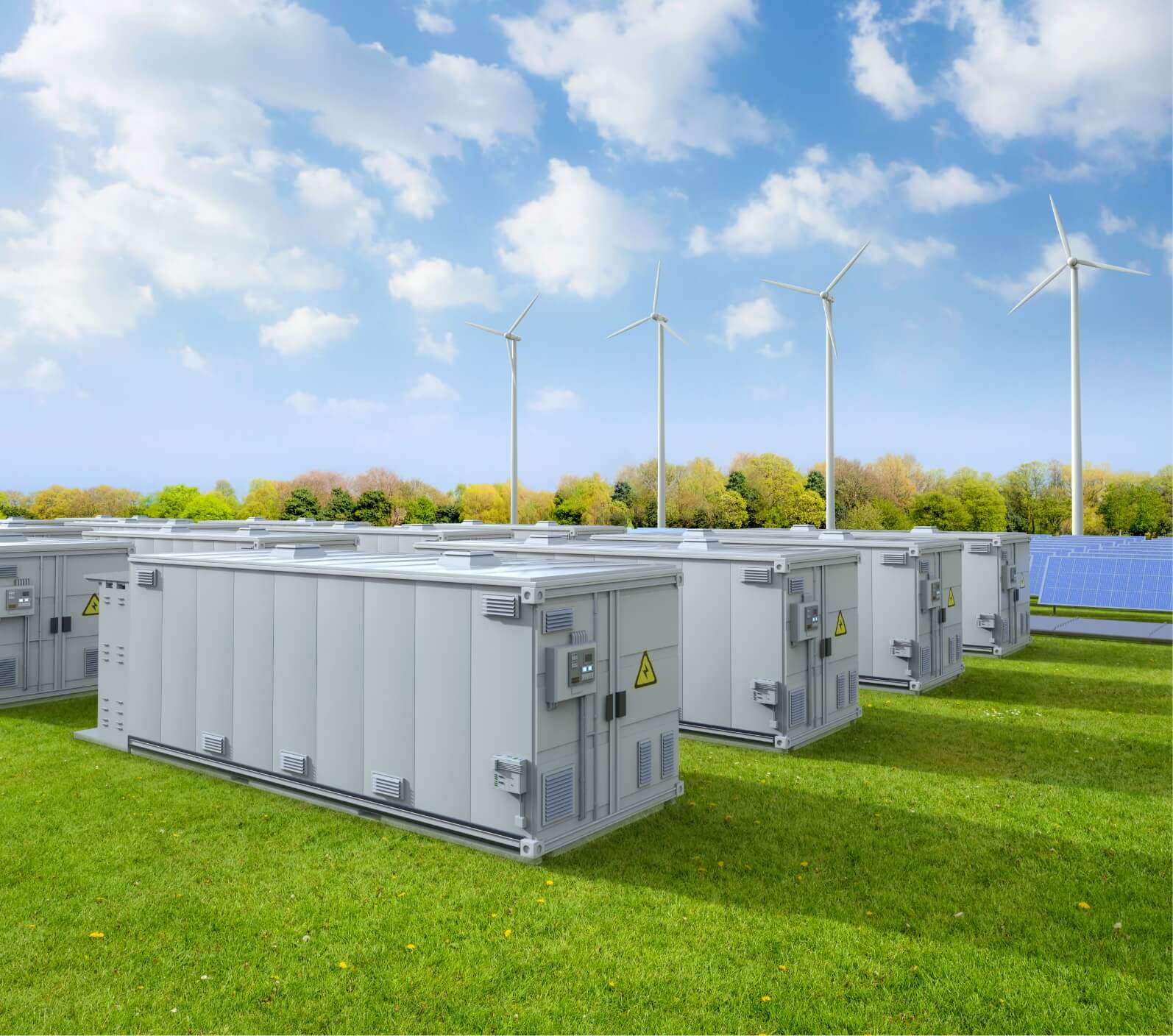The experts at Frontier Economics are forecasting a plus in the billions – primarily due to falling emissions and lower expenditure on fossil fuels.
Large batteries benefit the economy and society far more than they cost. This is the key finding of a recent study by the international economic consultancy Frontier Economics (FE) on the “Potential of large-scale battery storage in Germany”. The investment costs would be “more than compensated for” by “savings in fuel and CO2 costs”, it says.
According to the experts’ calculations, “large-scale battery storage systems will help to avoid around 6.2 million tons of CO2 in 2030 and around 7.9 million tons of CO2 in 2040” – in particular because they reduce the need for back-up gas power plants. Based on calculations by the Fraunhofer Institute, we are even more optimistic and assume that the benefits to society will exceed the 12 billion euros forecast by FE by 2050.
What is physically green electricity should also be legally green electricity
With regard to the study, Handelsblatt states that large energy storage systems will “play a key role” in the energy transition. The Federal Ministry of Economics is therefore “endeavoring to reduce regulatory hurdles”.
In fact, the electricity storage strategy presented by the ministry in December contains some important points. However, further regulatory relief is needed to exploit the potential of large-scale batteries. Battery power should therefore also be legally classified as what it physically is de facto: green electricity. The German Energy Storage Systems Association (BVES), which we recently joined, has therefore rightly formulated further-reaching expectations of politicians this week. We are curious to see what the ongoing consultation process will bring.

